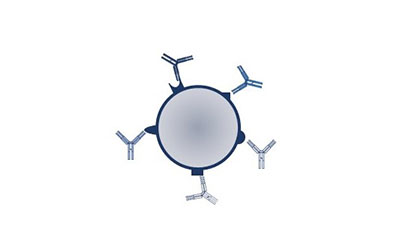-
SKU: il-12As low as €112.00
In stock
-
-
SKU: il-2As low as €85.00
In stock
-
SKU: il-6As low as €59.00
In stock
-
SKU: leptinAs low as €112.00
In stock
-
SKU: m-csfAs low as €112.00
In stock
-
SKU: resistinAs low as €112.00
In stock
-
SKU: scfAs low as €59.00
In stock
-
SKU: tnf-alphaAs low as €59.00
In stock
-
Polyclonal Antibodies


Polyclonal antibodies (pAk) are a heterogeneous mixture of antibodies produced by different B cell clones. They recognize and bind to different epitopes of an antigen, which gives them a broad recognition capability. These properties make them particularly suitable for use in diagnostics, immunostaining and as therapeutic agents for infectious diseases or poisoning.
The production of polyclonal antibodies usually begins with the immunization of a host organism, often a rabbit, sheep or goat, with the target antigen. The animal's immune system responds by producing antibodies that circulate in its serum. After repeated immunizations, the animal's blood is collected and the serum is obtained by centrifugation.
In order to isolate the antibodies, the serum is purified in a further step, for example by affinity chromatography. This method uses the binding specificity of the antibodies to separate them specifically from the rest of the serum. The final products can be provided in liquid form or lyophilized.
All prices plus VAT + possible delivery charges
